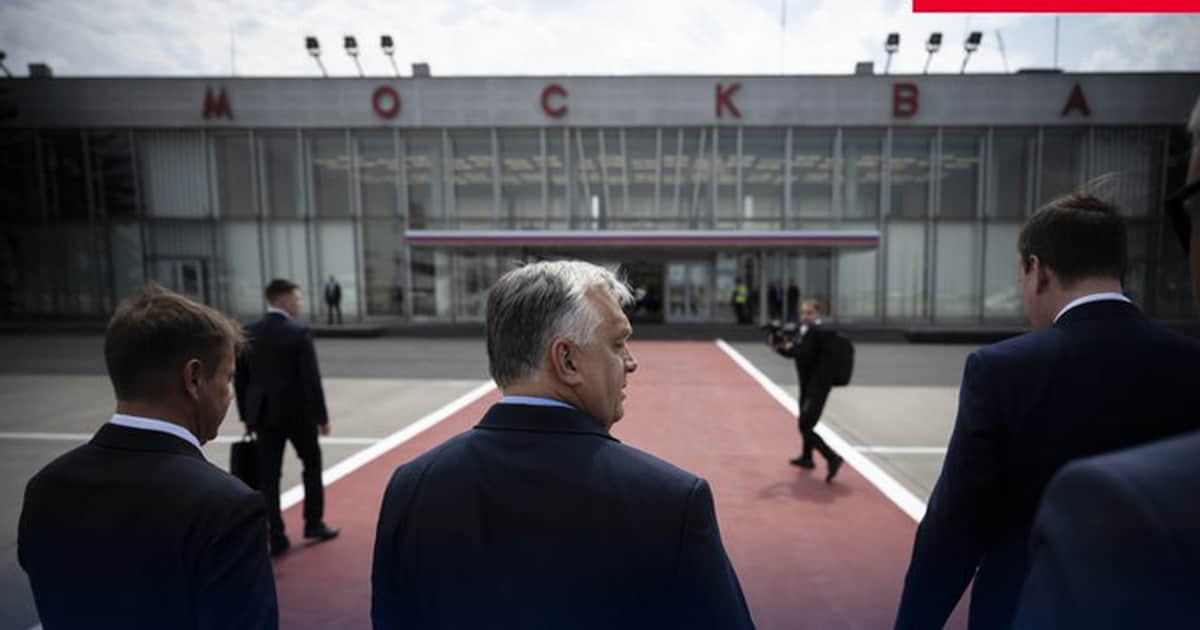Why Orbán plays “peacemaker” and whether his efforts are dangerous for Ukraine

Hungarian Prime Minister Viktor Orban has arrived in Moscow for a visit. The official purpose of the trip is to negotiate peace. Orban, who had just been in Kyiv discussing his "peace ideas" with Zelenskyy, has now come to Putin, ostensibly to deliver a message from the Ukrainian leader.
We can assure: there is nothing wrong here. Orban, a master of political PR, is playing a role, and he is performing for only pne person - likely the next President of the United States, Donald Trump. Read more about what is happening and why in the article by Sergiy Sydorenko, the European Pravda editor - For 'peace' to Putin: What lies behind Orban's trip to Moscow following the meeting with Zelenskyy.
Advertisement: News of Hungarian Prime Minister Viktor Orban's visit to Moscow on 5 July was only reported by Hungarian media the evening before. The first public reaction from Brussels and other capitals was anger.
The second was an attempt to distance themselves from Orban's actions. This visit not only violates the informal Europe-wide embargo on leaders travelling to Moscow, but it also complicates the situation since the Hungarian government has begun its presidency of the EU Council this week. Orban's actions are much more significant during this time.
"Orban does not have a mandate from the EU to engage with Russia," responded European Council President Charles Michel. However, the European aspect of this story does not matter to Orban. His target audience is across the ocean.
For Ukrainians, though, the key issue is not Orban's lack of coordination with his European counterparts or his inappropriate actions on the European stage (which, frankly, surprises no one), but the purpose of his visit. It is quite evident that the visit to the Kremlin is connected to Orban's trip to Kyiv. All last week, Orban diligently promoted the narrative of his efforts to "reconcile" Ukraine and Russia.
He claimed that during his visit to Kyiv, he would take the "first step towards peace," with further steps yet to be disclosed, he said even before the meeting with Zelenskyy. After the visit, he mentioned that he indeed discussed a "ceasefire" with Zelenskyy and received some signals from him that he is now ready to convey to other leaders. But has he brought any messages from Ukraine to the Kremlin?
Is there fundamental agreement from Kyiv on his "peace plan" involving freezing military actions along the current line of contact? European Pravda has every reason to state that the answer to these questions is an unequivocal "no." So why is Orban doing this?
What is the point of simulating peacemaking activity if he does not have a mandate for such "creativity" from the parties he is trying to talk to? The explanation is simple: in this case, the outcome is not important for Hungary, but the process is. Viktor Orban probably understands that his efforts will not have any real effect.
The goal is different. The current leader of Hungary traditionally builds his foreign policy around relations with the United States. His relations with Biden have long been hopelessly damaged, so Orban, contrary to international etiquette, openly supports Donald Trump, bets on his victory and tries to do everything to become one of Trump's main contacts in Europe.
And Ukraine is just an instrument to achieve this goal. However, it is important that Orban's negotiations with Zelenskyy and Putin do not pose any threat and do not indicate Kyiv's readiness to make any concessions hidden from the public's view. The fact that Orban came to Moscow is certainly unpleasant.
But it is unlikely that this decision surprises anyone seriously.
If you notice an error, select the required text and press Ctrl + Enter to report it to the editors.